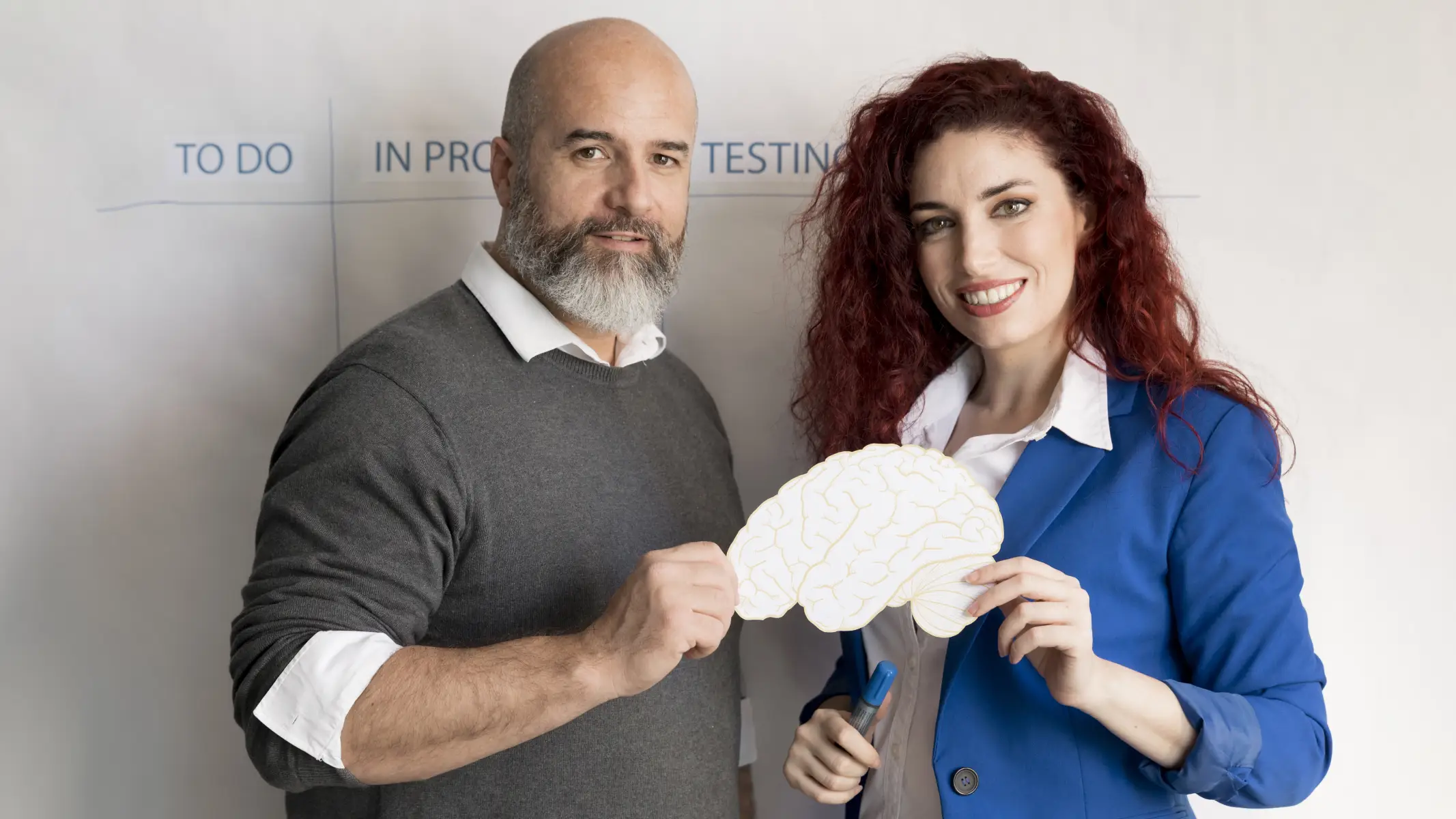In family law disputes, emotions run high, and the stakes involve more than just legal or financial outcomes—they touch deeply on relationships, children’s well-being, and the emotional and mental health of everyone involved. Family law cases often span sensitive and challenging issues such as divorce, child custody, domestic abuse, and separation, all of which can take a heavy toll on mental well-being. This is where the need for psychological therapy for family law becomes crucial. Incorporating mental health support into the legal process helps families navigate these turbulent times while ensuring emotional healing and long-term stability.
In the UK, where family law cases are on the rise, addressing mental health challenges is becoming increasingly recognised as a vital element in resolving disputes effectively and fairly. This article delves into common psychological challenges faced in family law cases and shows how integrating mental health support can lead to better outcomes for individuals and families.
The Role of Mental Health in UK Family Law
Family law covers a broad spectrum of cases, including divorce, child custody, adoption, and domestic abuse. Each of these matters inherently impacts mental health, creating challenges for both adults and children. Stress, anxiety, depression, and even post-traumatic stress disorder (PTSD) can arise as legal battles strain personal lives.
In the UK, the need for mental health support in family law is undeniable, as the emotional toll of disputes often becomes a central focus during proceedings. By acknowledging the psychological consequences, solicitors and courts can prioritise the overall well-being of families, particularly when children are involved.
Common Psychological Challenges in Family Law Cases
Family law disputes often lead to a host of psychological challenges for everyone involved. Below are some of the most common mental health difficulties observed during family legal proceedings:
- Stress and Anxiety During Legal Battles
For many, navigating a family law dispute is one of the most stressful experiences in life. The uncertainty surrounding outcomes—such as whether a parent will win custody or how financial settlements will be resolved—causes significant anxiety. - Emotional Trauma From Broken Relationships or Abuse
In divorce cases, especially those involving infidelity or domestic abuse, individuals often face emotional trauma. These feelings can range from grief and loss to fear and anger, often leaving long-lasting scars. - Mental Health Challenges in Children
Children are vulnerable participants in family law disputes, particularly in cases of custody and visitation arrangements. Witnessing parental conflict or coping with separation often results in emotional distress, behavioural problems, or long-term mental health issues. - Depression From Isolation or Financial Uncertainty
Divorce or separation often leads to isolation or financial difficulties, particularly for primary caregivers or stay-at-home parents. This financial instability can contribute to feelings of depression and hopelessness. - Post-Traumatic Stress Disorder (PTSD) in Domestic Abuse Cases
Domestic abuse survivors frequently experience PTSD, characterised by flashbacks, nightmares, and debilitating fear. This can make it difficult for survivors to engage fully in the legal process, potentially jeopardising their access to justice. - Challenges in Co-Parenting or Shared Care
When joint custody arrangements are ordered by the court, the psychological burden of navigating an amicable co-parenting relationship can be overwhelming for parents who are still processing anger or hurt.
Importance of Psychological Therapy in Family Law Cases
Psychological therapy for family law provides individuals and families with the tools they need to navigate emotional challenges while addressing mental health needs. Therapy can play a significant role in mitigating the psychological toll caused by family disputes and strengthening legal cases by demonstrating the impact of emotional harm.
- Promoting Emotional Resilience
Therapy helps individuals process their emotions and develop healthy coping mechanisms during family law disputes. This empowers them to better manage stress while they focus on the legal process. - Supporting Children’s Mental Health
Children are among the most affected parties in family disputes. Therapy ensures their emotional needs are addressed, minimising the risk of long-term harm. Child-focused therapy services provide a safe space for young people to express their emotions and adjust to new family dynamics. - Building Stronger Legal Arguments
In cases of domestic abuse or custody battles, therapy can be used to validate claims of emotional distress and trauma. Medico-legal reports prepared by professional therapists or psychologists provide concrete evidence of the mental health impact, which strengthens the claim and helps achieve fairer outcomes. - Improving Co-Parenting Dynamics
Through counselling, parents can learn strategies for effective communication and conflict resolution, fostering a more cooperative co-parenting relationship that prioritises the child’s needs.
Mental Health Support Options in UK Family Law
The UK offers a variety of mental health support services tailored to individuals going through family law disputes. These services encompass therapeutic interventions as well as legal psychological support to ensure claimants receive the care they need. Some key options include:
- Individual Therapy
Therapy for individuals focuses on addressing personal emotions and mental health issues. This may include:- Cognitive Behavioural Therapy (CBT): Effective for managing anxiety and stress.
- Trauma-Focused Therapy: Beneficial for victims of domestic abuse and those dealing with severe emotional distress.
- Psychotherapy: Long-term therapy for individuals struggling with depression or relationship grief.
- Child and Adolescent Therapy
For children caught in custody disputes, therapy addresses emotional distress caused by disrupted family dynamics. In the UK, many child-focused therapy services, including play therapy and art therapy, are designed to help children process complex emotions in a safe environment. - Family Counselling
Joint counselling sessions involve family members working together to resolve conflicts, improve communication, and rebuild healthy relationships. In custody or visitation arrangements, family counselling can foster collaboration between separated parents. - Domestic Abuse Support Services
For survivors of domestic abuse, support services such as women’s refuges, helplines, and trauma counselling allow individuals to heal emotionally while seeking justice in court. - Court-Mandated Mediation or Therapy
In some UK cases, courts might recommend or mandate therapy as part of family dispute resolution. For example, mediation backed by therapeutic support helps parents develop functional co-parenting strategies without escalating disputes. - Legal Psychological Support (Medico-Legal Reports)
Solicitors can collaborate with psychologists to obtain medico-legal reports for clients experiencing emotional trauma. These reports not only highlight mental health needs but also serve as evidence in family court proceedings or financial settlements.
Challenges in Providing Mental Health Support in Family Law Cases
Despite the importance of psychological therapy, there are significant challenges in ensuring consistent access to UK family law mental health support:
- Stigma Surrounding Mental Health
Clients may be reluctant to pursue therapy due to stigma or fear of judgment, especially in high-conflict divorce or custody cases. Solicitors must normalise therapy as part of the legal process while emphasising the benefits. - Access to Services
NHS waiting lists for mental health therapy can delay care for clients in urgent need.
Solution: Working with private therapy providers ensures timely access, and therapy costs can often be included in the compensation or settlement sought in family law disputes. - Financial Constraints
Low-income families might struggle to afford private psychological therapy services.
Solution: Solicitors can connect clients with charities or subsidised therapy options, such as Relate or Women’s Aid, which provide affordable mental health support. - Integrating Mental Health Support With Legal Processes
Ensuring therapy aligns with the timeline and goals of family law cases can be difficult.
Solution: Collaboration between solicitors and mental health professionals ensures that therapy proceeds in tandem with legal needs, such as gathering medico-legal evidence for court.
Solutions for Incorporating Mental Health Support in Family Law
To overcome the above challenges and prioritise emotional well-being in legal disputes, solicitors should adopt the following strategies:
- Early Intervention
Solicitors should encourage clients to seek mental health support as early as possible during family law disputes. Early therapy prevents emotional issues from worsening and provides stronger medico-legal documentation. - Collaborate With Trusted Mental Health Providers
Partner with licensed psychologists or counsellors experienced in family law. Their expertise ensures the therapy provided aligns with the legal process, and they can supply professional evaluations or court-admissible medico-legal reports. - Include Therapy in Court Settlements
When calculating financial settlements or child maintenance payments, factor in the cost of therapy for both clients and children to ensure mental health support is financially accessible. - Raise Awareness
Solicitors can educate clients on the importance of therapy and provide recommendations for reputable services. Reassure clients that seeking mental health support is a sign of strength, not weakness.
Conclusion
Psychological therapy for family law is vital for addressing the emotional challenges that arise in disputes involving divorce, child custody, or domestic abuse. For UK families, these cases often carry significant mental health implications that require expert intervention to ensure long-term recovery and well-being. By integrating UK family law mental health support into legal proceedings, solicitors can better advocate for their clients, ensuring that justice encompasses not just legal resolutions but also emotional and psychological healing.
From early psychological assessments to steady access to therapy and including related costs in settlements, solicitors have a significant role in securing better outcomes for individuals and families. Adopting a proactive, compassionate approach to mental health in family law ensures that clients not only achieve justice but also the tools they need to rebuild their lives moving forward.










